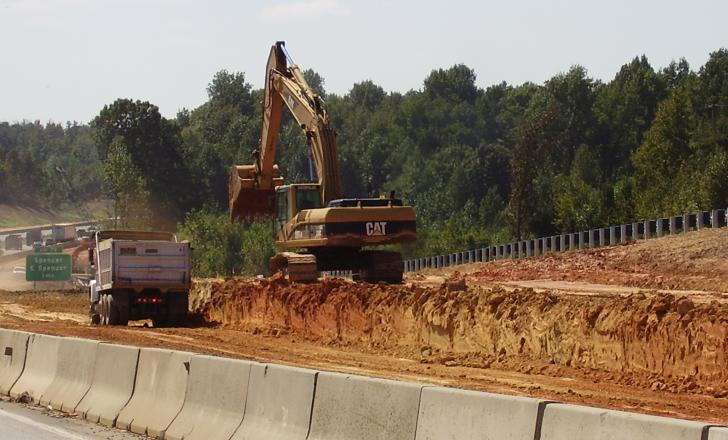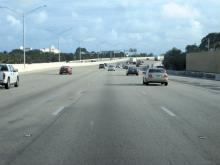It’s make or break time for highways maintenance in the United States, according to Greg Cohen, head of the American Highways Users’ Alliance, speaking at the Pavement Preservation and Recycling Summit in Paris today. What happens in the next year will make the difference between a decade of continuing crumbling road infrastructure or a renaissance in America’s highways, he told delegates attending the first day’s afternoon plenary session. All state governments must submit a road asset management plan to t

Increased fuel taxation will help pay for US highway funding shortfalls
RSSIt’s make or break time for highways maintenance in the United States, according to Greg Cohen, head of the 8007 American Highways Users’ Alliance, speaking at the Pavement Preservation and Recycling Summit in Paris today.
What happens in the next year will make the difference between a decade of continuing crumbling road infrastructure or a renaissance in America’s highways, he told delegates attending the first day’s afternoon plenary session.
All state governments must submit a road asset management plan to the federal government by 2016 to show that they are moving toward a more planned maintenance view of their highways system. While the federal government will have no authority to approve or deny the plan, what it does have is a firm on grip on the purse strings – how much money will be handed over to the state to carry out their maintenance plans.
However, Cohen acknowledged that even with a state laying down a good asset management plan, there is no guarantee that all the money needed will be forthcoming from the federal government. The federal pot is pretty much empty, he said.
Historically, the roads have been built by the federal government but owned by the state which must then maintain the infrastructure. To do this the Highways Trust Fund was set up in 1956 into which gasoline taxes have been allocated. All was rosy until 2008 when the trust had its first financial shortfall – not enough cash to satisfy requests by states.
This situation for the fund has continued in more or less that state, said Cohen, who has been at the helm of the alliance for 12 years. America has had, and continues to have, a strong anti-tax lobby at all levels of government, so the 18.4 cents tax on a gallon of fuel will likely not be raised, which puts the United States woefully down the list of countries that support road infrastructure with taxes.
Cohen told delegates that he is hopeful that Congress will approve a Highways Bill by the end of the year that will embed a greater responsibility on states to better manage their roads through such things as long-term maintenance. But there will also be an element of increasing public awareness at all levels of government about the importance of America’s roads.
Cohen told World Highways that that added responsibility means many states will have no choice but to turn to the pavement preservation sector to seek innovation in asset management. The pressure will be on the industry to find efficiencies, improve their supply chain and come up with innovative ideas.
This could also open the door for smaller companies to get a chance to prove their systems and products. No stone should be unturned.
A good result will be for the state to show that it is doing more with less through innovation and efficiencies which would build confidence in the public that their gasoline taxes are being spent wisely. This could in turn, said Cohen, break down barriers and weaken fuel against increasing fuel taxes.
What happens in the next year will make the difference between a decade of continuing crumbling road infrastructure or a renaissance in America’s highways, he told delegates attending the first day’s afternoon plenary session.
All state governments must submit a road asset management plan to the federal government by 2016 to show that they are moving toward a more planned maintenance view of their highways system. While the federal government will have no authority to approve or deny the plan, what it does have is a firm on grip on the purse strings – how much money will be handed over to the state to carry out their maintenance plans.
However, Cohen acknowledged that even with a state laying down a good asset management plan, there is no guarantee that all the money needed will be forthcoming from the federal government. The federal pot is pretty much empty, he said.
Historically, the roads have been built by the federal government but owned by the state which must then maintain the infrastructure. To do this the Highways Trust Fund was set up in 1956 into which gasoline taxes have been allocated. All was rosy until 2008 when the trust had its first financial shortfall – not enough cash to satisfy requests by states.
This situation for the fund has continued in more or less that state, said Cohen, who has been at the helm of the alliance for 12 years. America has had, and continues to have, a strong anti-tax lobby at all levels of government, so the 18.4 cents tax on a gallon of fuel will likely not be raised, which puts the United States woefully down the list of countries that support road infrastructure with taxes.
Cohen told delegates that he is hopeful that Congress will approve a Highways Bill by the end of the year that will embed a greater responsibility on states to better manage their roads through such things as long-term maintenance. But there will also be an element of increasing public awareness at all levels of government about the importance of America’s roads.
Cohen told World Highways that that added responsibility means many states will have no choice but to turn to the pavement preservation sector to seek innovation in asset management. The pressure will be on the industry to find efficiencies, improve their supply chain and come up with innovative ideas.
This could also open the door for smaller companies to get a chance to prove their systems and products. No stone should be unturned.
A good result will be for the state to show that it is doing more with less through innovation and efficiencies which would build confidence in the public that their gasoline taxes are being spent wisely. This could in turn, said Cohen, break down barriers and weaken fuel against increasing fuel taxes.






